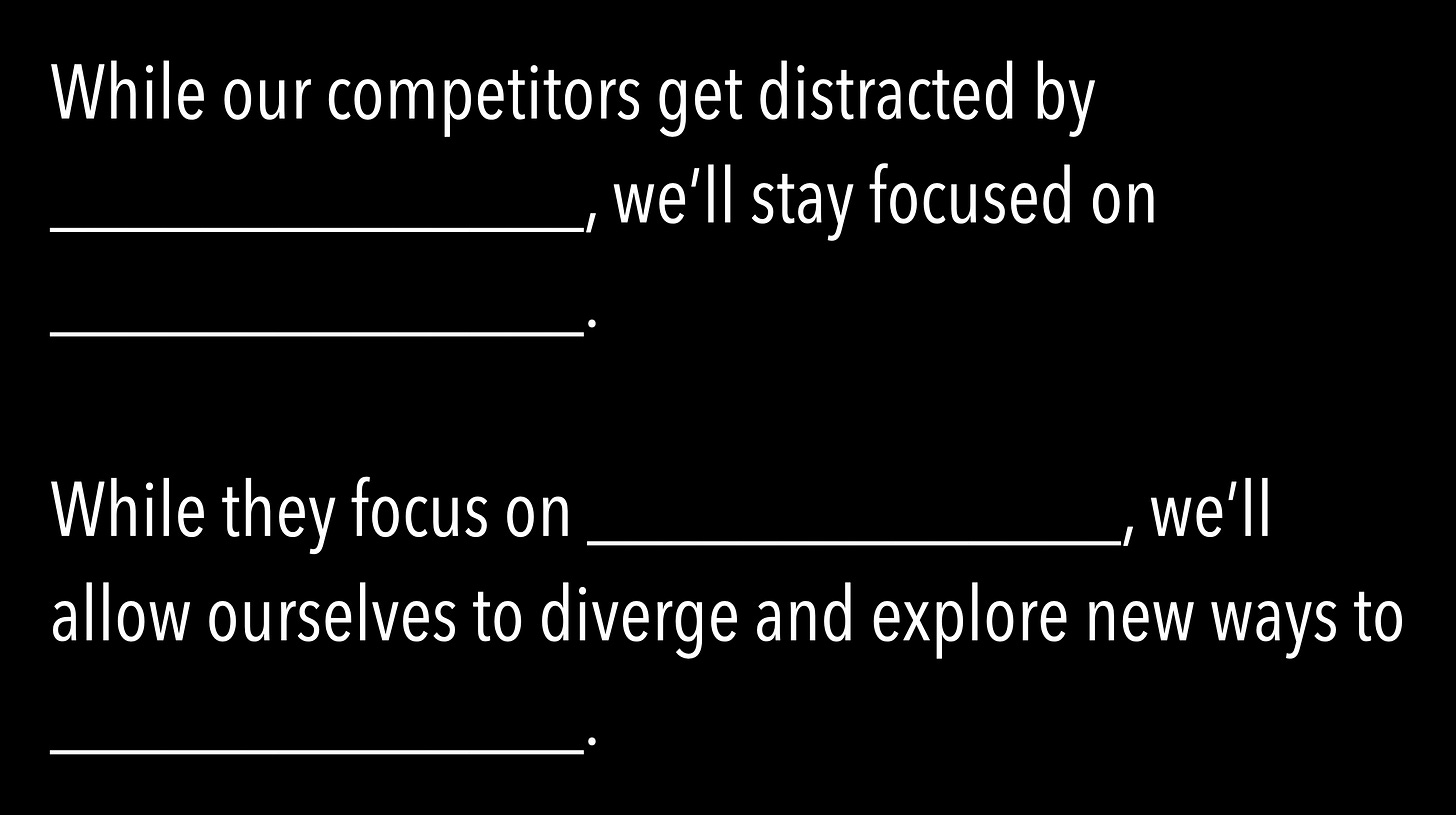TBM 47/52: Prompts for Exploring Strategic Tensions and Polarities
Here are some strategy prompts to guide you through the perverse holiday ritual we call annual planning. Are these meant to be challenging? Yes. You’ll notice that each prompt explores a tension and/or polarity. Do organizations AVOID statements like this like the plague? Yes. Most do. Why? Because focus is a threat to whatever political stalemate exists.
Still…I think these are valuable.
I’d also really appreciate it if you help with an experiment. Next week I am doing a free talk with my former co-worker and friend Varun Sharma from Enterpret. We are going to be focusing on annual planning. Join us! In that discussion, I’d love to feature some example “filled-in” prompts. If you have a moment and want to provide one (or three) anonymized examples, I would be very grateful.
How do you use these prompts? I recommended a group activity. Start by challenging the team to come up with “fantastical” examples—they don’t need to make sense (e.g., “we are going to deprioritize offering coffee in the office”). Move to answering the prompts for OTHER companies. This is a lot of fun. Finally move on to your company. Stress that this is to explore ideas, not put people on the spot. Offer versions. Craft. Refine. Word-smith.
In the next twelve months, we are going to intentionally deprioritize ______________ based on evidence that ______________. We’ll revisit this decision periodically, and be on the lookout for ______________.
While our competitors get distracted by ______________, we’ll stay focused on ______________. While they focus on ______________, we’ll allow ourselves to diverge and explore new ways to ______________.
There’s a counterintuitive element to the question of whether to ______________ or ______________. And that’s that ______________.
We need to ______________ before ______________. If we don’t, we run the risk of ______________.
We have flexibility when it comes to ______________. But if we don’t ______________ in the next ______________, we’ll be in less of a position to use that flexibility to our advantage.
We are admittedly less experienced at ______________. But we do know ______________, and we can _____________. So there may be more options here than we think.
Despite our many disadvantages when it comes to ______________, I do believe we have leverage when it comes to ______________. This will not be easy, but there’s an opportunity to ______________.
While competitors are going to zig by ______________, we’re going to try to zag by ______________. We believe that will ______________, despite signals that ______________.
Our key strategy is to turn the game of ______________ into a game of ______________.
The riskiest assumption we are operating under at the moment is that ______________. If we’re wrong, it could significantly impact the business because ______________.
Until now we’ve been able to _________. Now, because _________, it will be necessary to change our approach to something more _________, and less _________.
It is vital to start laying the groundwork for ______________. In the near-term we can get away with not ______________. But it will eventually come back to bite us.
A key part of our strategy is to ignore ______________, despite pressure to ______________. This will be challenging because ______________, but ultimately we believe it will pay off because ______________.
Pundits believe that ______________. They’re right that ______________, but I believe they are wrong about ______________ because they are missing the insight that ______________.
Thanks for reading. Join Varun and I next week if you have some time. And consider submitting an example.


